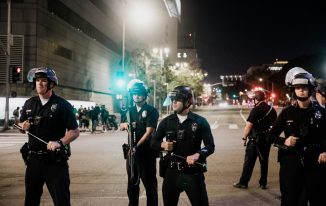Civilians in most countries do not trust the police force and have very little liking for them. This is perhaps due to the fact that it is the civilian who often has to prove they have done no wrong other than the police officer proving a wrong has been committed. Police officers on the other hand have learned to view most civilians as offenders. How can this situation change? How can police departments increase or rather recover the trust lost with the public?
Dealing with officers caught in crime
Most times police officers are usually caught doing what they should not be doing. This often ends up with a minor suspension of the officer but with all benefits. However, maybe it would be in the best interest of the public and the force to treat the officer like other criminals, no badge, benefits or any type of pay.
Evidence tampering
Most officers, by virtue of their rank and authority often tamper with evidence especially if it implicates them. An officer caught in any type of evidence-tampering should be duly charged under the laws. Most of these cases just get swept under the floor leaving the public feeling betrayed.
Malfeasance
Law enforcement officers often commit crimes simply because their position allows them to or rather allow them to avoid punishment. However, instead of being treated with leniency, police officers who commit crimes as a misuse of their authority should have their punishment doubled to ensure less betrayal of the public’s trust.
Dealing with brutality and excessive force
This is one topic we can possibly not get to the end of. Police brutality and unnecessary use of force dominate media channels all over the world. However, most times, this goes unpunished probably due to the bureaucracy in justice systems among other impediments. However, for the force to gain more trust with civilians, all cases of brutality, needless escalation, violence and excessive force should be treated as murder attempts and the involved officers charged with the laws governing such.
Detailed investigations
Most internal investigations often follow informal structures set up by fellow police officers in a certain department. These are usually cleverly designed to hide facts, cover up the truth or cause obstructions and impediments to investigations. However, all investigations should be carried out in a detailed and documented manner so that were other people to be brought in, they would easily catch up on the progress of the investigation. Offices who do not comply with such directives should end up under investigation to reveal their motives.
Handling retirements under investigation
An officer under investigation should not be allowed to retire. Retirement would be okay as long as it does not affect the direction of investigation. Basically, there should not be the often-seen situation where an investigation stops once the person charged leaves their position. If found guilty, a person who resigned a certain position should be sentenced just as they would have while in the position



